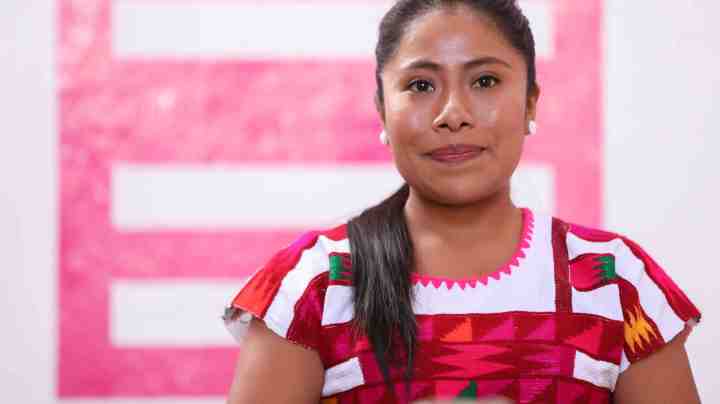Yalitza Aparicio Is Teaming Up With UNESCO as a Goodwill Ambassador for Indigenous Peoples

Yalitza Aparicio smiles during the press conference and screening of Alfonso Cuaron's and Netflix film 'Roma' as part of the Oaxaca Film Festival on November 15, 2018 in Oaxaca, Mexico. Photo by Victor Chavez/Getty Images for NETFLIX
In the short time since Yalitza Aparicio stunned us with her powerful performance (and first acting role) in Alfonso Cuarón’s Roma, the Mixteco-Trique actress has uplifted Indigenous communities. So it’s only natural that the United Nations’ UNESCO would want to team up with Aparicio. Recently, the org named her its goodwill ambassador for indigenous peoples.
Through this new role, Aparicio will work with Indigenous groups globally to help with preserving cultural heritage and fighting for their rights. And as someone who knows the extra difficulties groups face, she has ideas of the kinds of issues she wants to tackle. “There are several cases where there are Indigenous people who are judged in a foreign language, without the right to have a translator, and I think it’s something that we should take action on,” she said, according to NBC News.
Yalitza, who said she was “proud to be an Indigenous woman,” has demonstrated her commitment to Indigenous groups. Five months ago, she headed to Colegio de Bachilleres de Oaxaca in Tlaxiaco – her hometown – to donate laptops to Mixteco students. Yalitza, who was a teacher before she began acting, donated nine laptops.
Otherwise, she has been vocal about how Indigenous communities are poorly represented in media. Before her Oscar nomination, she explained why it would be important to be recognized for her work.

“I’d be breaking the stereotype that because we’re Indigenous we can’t do certain things because of our skin color,” she told The New York Times. “Receiving that nomination would be a break from so many ideas. It would open doors to other people — to everyone — and deepen our conviction that we can do these things now.”